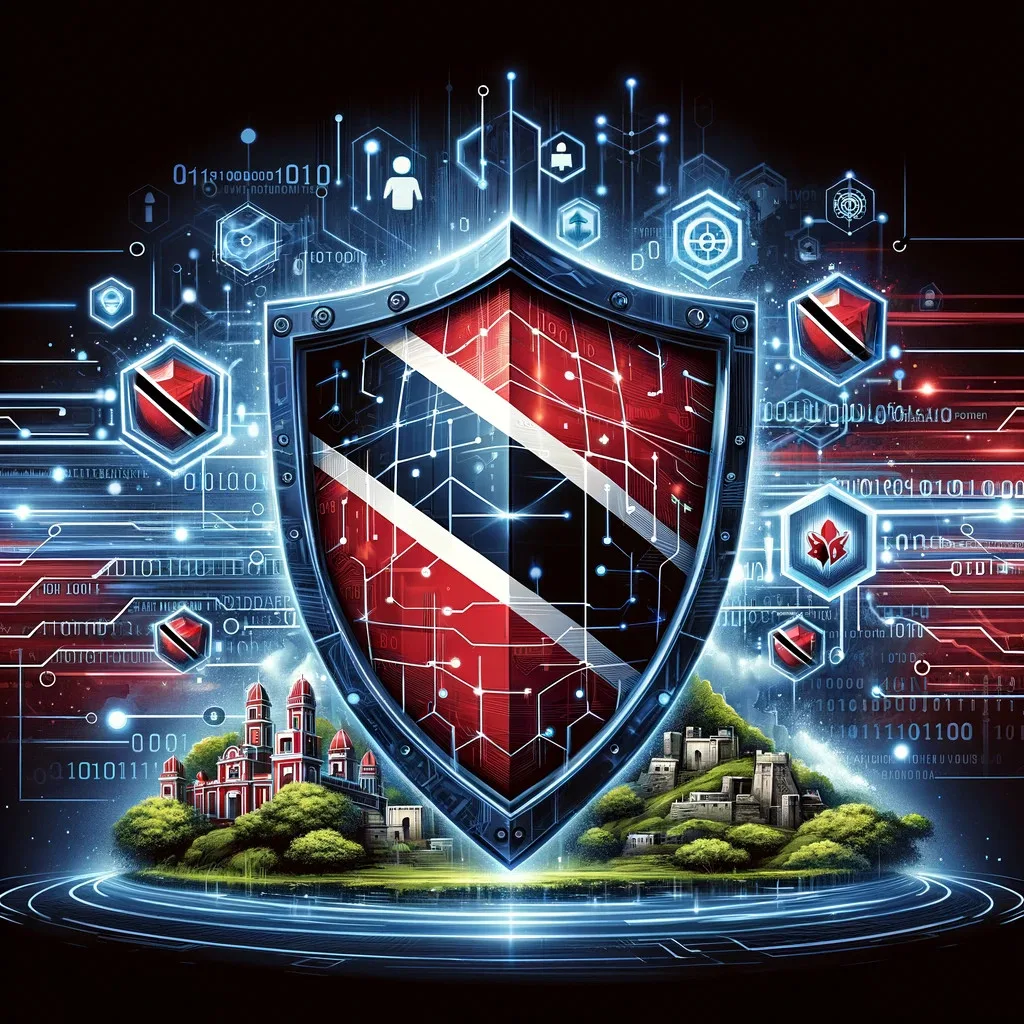
The Trinidad Guardian’s recent article, published on May 24, 2023, “168 Cyberattacks a Minute in T&T,” has ignited a wave of concern about cybersecurity in Trinidad and Tobago. We have consequently received numerous inquiries about cybersecurity protection, ransomware prevention, and overall internet security.
The Global Cybersecurity Threat Landscape
Cyber threats are unrelenting worldwide, including in Trinidad and Tobago. They infiltrate various sectors such as government infrastructure, healthcare, finance, and large businesses. Unfortunately, many organizations suppress news of these attacks to protect their reputation. Disturbingly, these attackers are now targeting SMEs, private healthcare entities, retail businesses, and manufacturing and distribution companies. Pc Expertz has encountered more than 20 unique cyber threats, ranging from email hacking and phishing attempts to wire transfer fraud and debilitating ransomware attacks.
Emerging Trends and Threats in Cybersecurity

The cybersecurity landscape is constantly evolving, becoming more complex and challenging. A concerning trend is the increasing prevalence of Ransomware-as-a-Service (RaaS), enabling even inexperienced criminals to conduct potent attacks using ransomware kits and target lists. This development has led to widespread havoc and damage.
Professional cybercriminals execute targeted strikes, implanting ransomware within networks strategically and activating it at opportune moments, employing sophisticated strategies. These coordinated attacks can cause immense damage, leaving victims struggling to recover. Consequently, the likelihood of ransom payments increases as organizations face the urgent need to mitigate the impact of such attacks.
The Impact of Cyber Threats
The threat landscape for cyber attacks, especially ransomware, is escalating rapidly. Huang, Wang, Wei, and Madnick’s May 2023 Harvard Business Review article titled “The Devastating Business Impacts of a Cyber Breach“ confirms this concerning trend. They found that a significant 83% of corporations experienced multiple data breaches in 2022. Moreover, the frequency of ransomware attacks unexpectedly increased by 13%, aligning with the accumulation of the past five years. The relentless surge in cyber risks is further emphasized by the disclosure of 310 cyber incidents in the first quarter of this year alone, highlighting the grave circumstances we face in today’s digital age.
The Shift to AI-Based Cyberattacks
A pivotal shift in the cyber threat landscape is the transition from human threat actors to AI-based cyberattacks. These attacks leverage advanced machine learning algorithms that possess the ability to learn and adapt to security measures, resulting in heightened difficulty in prevention and detection.
The adaptability and sophistication of AI-based cyberattacks present a significant challenge in the field of cybersecurity. These attacks learn from their errors, adjust to evolving environments, and discover novel methods to exploit vulnerabilities, rendering them far more formidable compared to traditional, non-AI attacks.
Harnessing AI, Machine Learning and Deep Learning for Cybersecurity

The various learning methods, AI, machine learning, and deep learning are distinct concepts in the field of cybersecurity, each with its own role in defending against cyber threats.
AI (Artificial Intelligence) Cybersecurity:
AI refers to the simulation of human intelligence processes by machines, specifically computer systems. In cybersecurity, AI systems are developed to process information, make decisions, and emulate human intelligence. AI cybersecurity systems excel at analyzing vast amounts of data, identifying patterns, and making predictions based on that information.
Advantages: AI can efficiently analyze large data sets, quickly detect suspicious behavior or patterns, and respond promptly to breaches. It is a versatile technology that finds applications in various cybersecurity areas, including threat detection, fraud detection, spam filtering, network intrusion detection, and prevention.
Limitations: The effectiveness of AI systems relies heavily on the quality of the data they are trained on. If the training data contains biases or inaccuracies, it can lead to biased decision-making. Additionally, AI can be exploited by cybercriminals to create sophisticated threats, leading to an ongoing “cyber arms race.”
Machine Learning Cybersecurity:
Machine learning, a subset of AI, uses algorithms to analyze data, learn from it, and make informed decisions. In cybersecurity, it enhances security by learning from past attacks and predicting future threats.
Advantages: Machine learning can automate threat detection, reduce human error, and continually adapt and learn from new threats. It can uncover hidden patterns and correlations in large datasets that would otherwise be impossible for humans to discern.
Limitations: Machine learning models can be complex and often require large, diverse datasets and significant computational power. They can also be vulnerable to manipulation or evasion by bad actors who understand the models.
Deep Learning Cybersecurity:
Deep learning, a subset of machine learning, uses artificial neural networks to simulate human decision-making. It’s particularly effective when dealing with unstructured data. For example PC Expertz offers the Deep Instinct cybersecurity platform which utilises deep learning.
Advantages: Deep learning can learn and make decisions independently. It can detect more complex patterns and anomalies and is well-suited to deal with large, high-dimensional data. It’s particularly effective in areas such as malware and anomaly detection, where the identification of complex patterns is key.
Limitations: Deep learning models can be a “black box,” meaning it can be difficult to understand how they’ve made a particular decision. They also require considerable computational power and large amounts of labeled data to train effectively.
In summary, deep learning excels in cybersecurity by detecting complex patterns and anomalies in large datasets for proactive defense. Among the three approaches (AI, machine learning, and deep learning), deep learning is emerging as the most effective method in the field.
The Deep Instinct Solution

In response to the rising AI-based cyber threats, PC Expertz offers the Deep Instinct cybersecurity platform. This groundbreaking solution uses deep learning to provide an unprecedented level of protection against increasingly sophisticated attacks.
Deep Instinct stands out for its ability to process, learn from, and absorb vast amounts of raw data. Unlike traditional approaches that solely rely on manual rules and signatures, Deep Instinct, on the other hand, employs a powerful deep learning model that directly learns from data. It analyzes millions of files in their raw form, automatically generating a predictive model that enables proactive threat anticipation, recognition, and neutralization.
Deep Instinct provides real-time protection across all devices within an organization’s ecosystem, be it desktops, laptops, or mobile devices. It acts as an impenetrable barrier, preventing malicious hackers from exploiting vulnerabilities.
In addition to the Deep Instinct platform, we offer the Arcanum Cloud-Based backup solution. This comprehensive approach equips businesses with the essential tools needed to combat the ever-evolving landscape of cybersecurity threats.
Take Charge
The cyber threat landscape is challenging, with evolving threats growing in sophistication. Traditional cybersecurity measures are insufficient against AI-enabled attacks.
Deep learning, as demonstrated in Deep Instinct’s platform, is a significant advancement in cybersecurity. It empowers us to protect digital assets and secure the future of businesses in Trinidad and Tobago.
PC Expertz is fully committed to offering advanced cybersecurity solutions to our clients. We are confident in our ability to meet and overcome future challenges. Our goal is not only to respond to cyberattacks but to anticipate and neutralize them, ensuring our clients’ digital resilience. By harnessing AI and deep learning, we aim to transform cybersecurity from a concern into a strength for businesses in Trinidad and Tobago.







